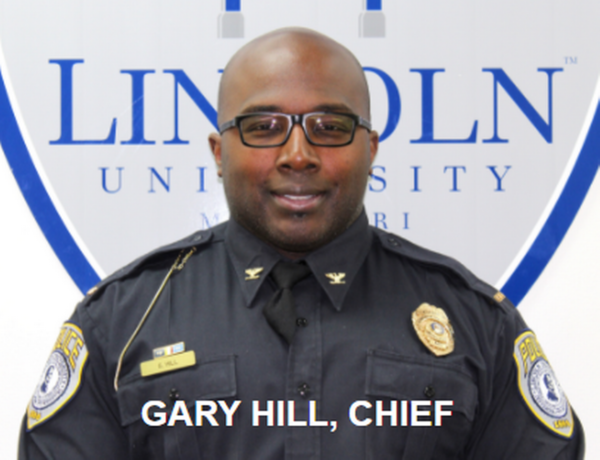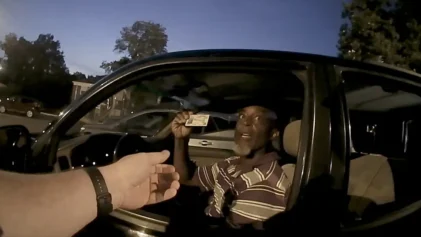Lincoln University is slated to become the first Historically Black College and University to offer a police academy. The officer who proposed it hopes the Jefferson City, Missouri-based program’s existence will make it easier to recruit more Black officers into the profession.
“I have always found it hard to get people of color to come to (an) academy,” Lincoln University Police Chief Gary Hill told The Kansas City Star.

Lincoln criminal justice professor Joseph Steenbergen, a colleague of Hill’s, underscored his point.
“Out of all the (police) academies in the state of Missouri, we had 400 graduates last year and only 14 were African American,” Steenbergen said.
Hill and his team have been working for more than three years to try to get approval to establish a Law Enforcement Basic Training Academy at Lincoln.
The fruits of his labor were rewarded Monday, Oct. 5, when Lincoln was granted preliminary approval to establish the training academy in a unanimous vote by the Peace Officer Standards and Training (POST) Commission, KRCG-TV reported.
POST Commissioner and Springfield Police Chief Paul Williams echoed sentiments shared by Hill and Steenbergen.
“Minority recruitment is probably the most difficult thing right now,” Williams said. “While Springfield had previously had African-American officers in the past, there were none when I took the chief’s position. It took eight years to build up to five black officers.”
They hope Lincoln’s upcoming academy will change that. Hill, as director, will lead the academy, which would make for the state’s 20th police academy. Through the academy at Lincoln, Hill wants to include the history of policing, Jim Crow laws, implicit police bias and de-escalation training as a core part of the curriculum.
“Learning about the history of policing in this country is important to understanding why some minorities feel the way that they do about law enforcement,” Hill said. “We want to increase the number of practical hours so that officers are learning how to deescalate and how they might react in a volatile situation rather than learning it on the street. I truly believe that has a lot to do with use of force incidents that we are seeing.”
While Hill’s goals are admirable, some may question whether the population Lincoln serves is most in need of such training as Black citizens are often the biggest targets of implicit bias in policing, not the arbiters of it.
However, police researcher, sociology professor and Brookings fellow Rashawn Ray told NPR that “officers, regardless of their race or gender, have similar implicit biases, particularly about Black people.” He added Black officers who police Black neighborhoods they are unfamiliar with can hold similar sentiments as their white counterparts.”
He added, “Part of the fundamental problem when it comes to policing that I’ve noticed is that when police officers interact with a white person, there is a pause, a slight pause, a slight benefit of the doubt. The reason why that exists is because subconsciously, implicitly, when they interact with that person, they see their neighbor, a parent at their kids’ school, and when they interact with a Black person, they are less likely to have what we call in sociology those “social scripts” that allow them to view people in those multitude of ways.”
Steenbergen hopes Lincoln’s academy can aid in changing that paradigm.
“It’s not all just about locking up bad guys. It’s also about building trust in the community where you work, he said. “I use the Ferguson example all the time,” he said, speaking of the police shooting death of Michael Brown in Ferguson, Missouri. “When federal investigators came in, they found that police department had racist policies and that created a mistrust. The shooting was just the straw that broke the camel’s back,” Steenbergen said. “We have to rebuild the trust. I don’t know any other academy that is going to focus on community policing as much as we are. We are not training SWAT officers. We want community police.”
Leadership at Lincoln is excited about the opportunity to be the first HBCU to have an academy. Its recruitment efforts reportedly will focus on current students, potential students, and working-class adults from minority communities.
“As an HBCU, we are keenly aware of the need to educate a diverse workforce for all disciplines. We know law enforcement and the public safety sector could benefit from a candidate pool that is more reflective of the communities they serve,” Lincoln President Jerald Jones Woolfolk said.
Based on the proposed budget and business model, if successful, Lincoln’s police academy will generate $50,000 in revenue for the university that would go to the university’s general fund.
Hill and Steenbergen hope Lincoln’s police academy will be a pilot for other HBCUs around the nation.
“Our goal is for Lincoln University Law Enforcement Training Academy to be the prototype academy for other HBCUs around the country. Our hope is that we will continue to inspire diversity in law enforcement,” the group stated in its application.


